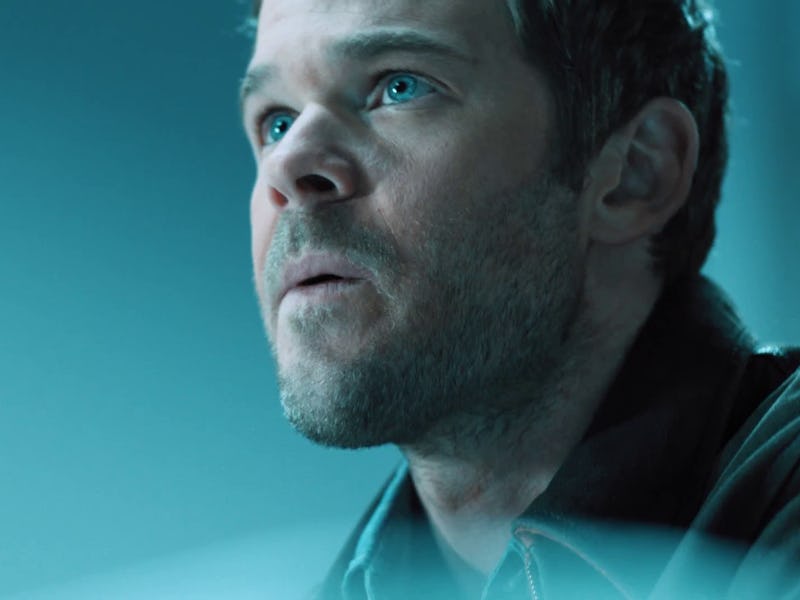'Quantum Break' Isn't Groundbreaking, It's Just Convoluted
When a video game also tries to be a TV show, there's very little to believe it can be anything but a master of none.

The promise of television’s neo golden age is predicated on the fluid identity of what we consider TV. A lot of things can be “TV” without being in a whiff’s distance of broadcast. House of Cards wasn’t the first nor the best Netflix series, but it was the watershed moment that acquainted us to original content from a thing that once upon a time was a mail-in Blockbuster. So anything can be TV! But as its manifest destiny is in swing, it’s high odds there are and will be duds from wild experimentation. Quantum Break, a hybrid Xbox One game and TV show, is shaping up to be that kind of dud.
After a time-travel experiment goes awry, two people develop time manipulation abilities: the inventor’s brother Jack (played by Shawn Ashmore), and Paul Serene (Aidan Gillen), leader of the ethically ambiguous Monarch Solutions. Instead of traditional cutscenes to deliver exposition (though Quantum Break does have them), the game tells its story with four 22-minute episodes that reflect actions you make in the game, creating a hybrid video game/television experience.
This isn’t to knock on Remedy Games — but what the hell? Remedy’s previous works like Max Payne and Alan Wake have been renowned for their balance of great storytelling and action, which have earned them the kind of reputation reserved for ridiculously talented indie bands who don’t put out enough material. But that just raises questions as to what kind of thinking on Earth that Quantum Break is coming from.
Quantum Break has been through a hellish development, which started as a traditional game first announced back in 2013 before unexpectedly tapping into TV this year. It’s difficult to fathom popping in a video game, where I want to participate in five seconds of fun repeated over, only to be greeted with full-length episodes that I have to watch or else I’m lost.
Video games and TV inherently come with a shared agreement regarding its promised experience. With video games, you’ve agreed to actively participate the entire way. In TV, you’ve agreed to be nothing more than a witness and to never engage. While video games have adopted a wider variety of cinematic tools, TV has not changed much from its passivity since Ed Sullivan.
The best story-heavy, narrative games (Mass Effect, Until Dawn, anything from Telltale Games) still require levels of participation. Quantum Break seems to encourage a passivity that can succeed or fail, neither of which guarantee engagement.
I’m not wholly opposed or offended by the idea. I actually admire Remedy’s effort to try something bold. But the more I think about Quantum Break the more it comes off like a friend’s spotty pitch for an app, a misguided attempt to predict the future of interactive storytelling: Nice, but no thanks.